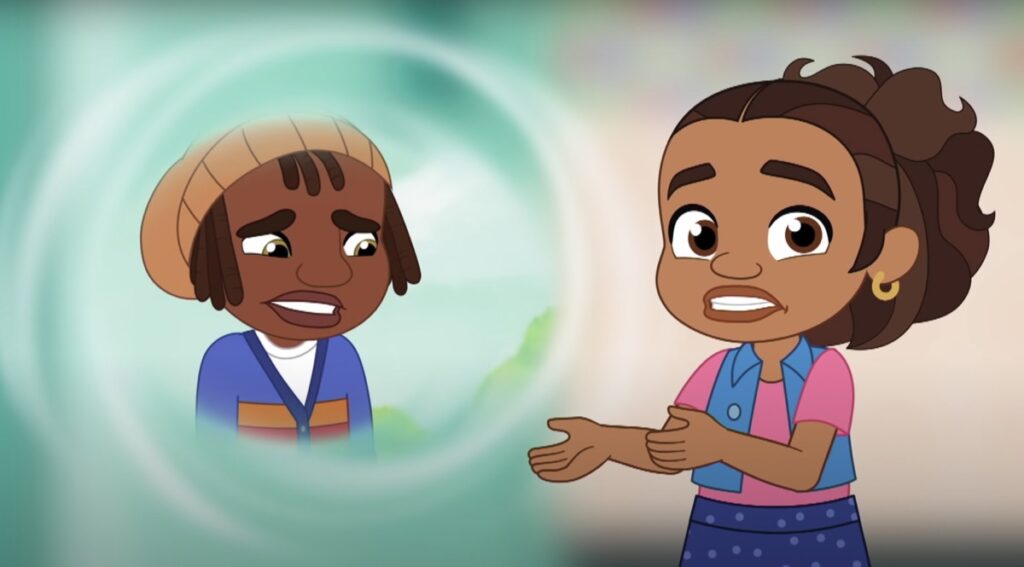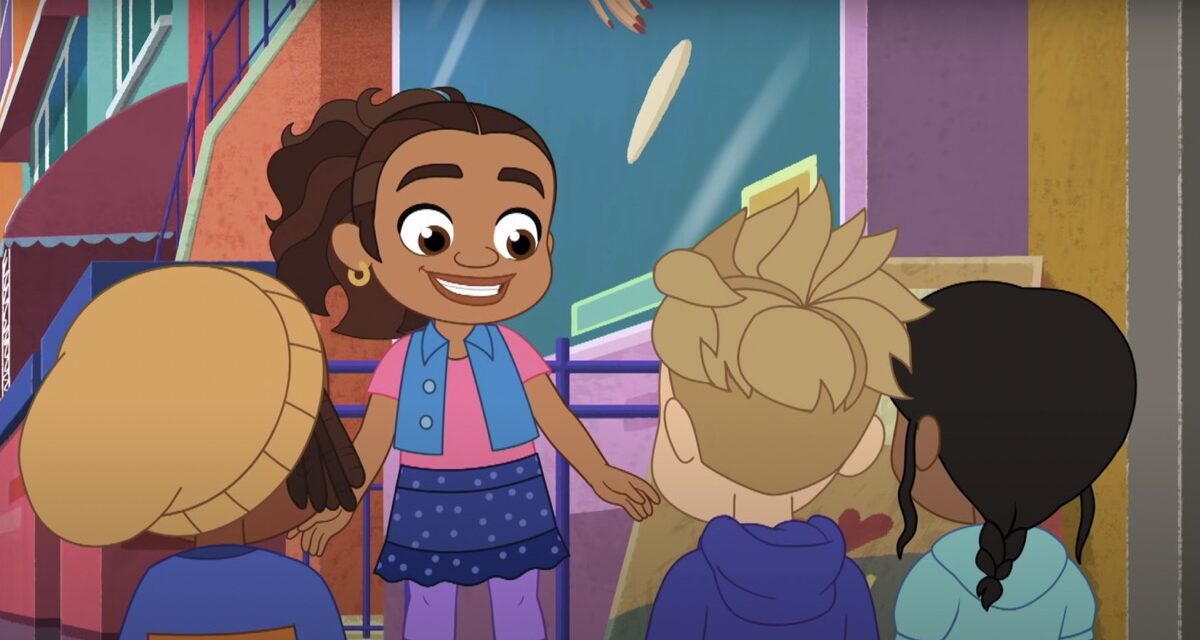I discovered, with my daughter, a new animated show on PBS Kids called Alma’s Way. It’s created by Sonia Manzano, who played Maria on Sesame Street. Alma is a six-year-old Puerto Rican girl who lives in the Bronx with her family. Each day she encounters various problems and situations that she needs to discern. In moments of uncertainty or unclarity, Alma stops and says, “I gotta think about this.” In one episode her friends were planning a movie night for the community. Her friend Andre was excited until he found out the movie that would be showing was a scary movie. Alma didn’t notice Andre’s reaction at first and was confused by his excuses not to attend movie night. When he finally says that he doesn’t want to go, she stops and says, “I gotta think about this.” Beside her swirls in a memory cloud where she replays the scene in her mind. She notices only now that he looked unexcited and even scared as she and others talked about their excitement for the scary movie. This reflecting helped Alma figure out an alternative plan for movie night so Andre could attend.

A Healthy Pattern
I was struck by how Ignatian this felt. As Alma replays a moment of her day in her mind, she pays attention to her feelings and the feelings of those she interacted with, and that informs her action. She’s essentially doing an Examen. We consider Ignatius innovative in developing the pattern for the Examen, but it’s a pattern that’s common in many human situations. Pausing, reflecting, and then acting is simply a healthy way of being a human. In the Ignatian world we call this being a contemplative in action. While Alma is not necessarily praying or explicitly bringing God into her reflection time, she is contemplating the “heart stuff” in her memory. And that moves her to take a particular action.
As Christians we can bring God into our reflecting, which we call an Examen. Our mental examination of a past event not only takes into account the events, emotions, and feelings experienced by others and ourselves, but also by God. We ask how God might have felt as God witnessed things unfold. We ask also how God might be speaking through the various feelings felt by those present. Alma took account of how her friend Andre was feeling, and this only became clear to her after the fact. This is why the Examen can be so helpful – we miss things in the moment. As she’s reflecting, Alma recalls a moment where she and the community center manager were doing monster dances in front of Andre. “Woah, I didn’t notice it before,” Alma says. “But Andre looked kind of scared…”
Responding vs Reacting
In another episode Alma discerns whether or not to leave a discussion amongst her friends about what mural to paint on a gate in their neighbourhood. She notices that they’re not listening to one another, nor her. “That doesn’t feel good,” she says. “But wait, even if I feel bad I shouldn’t just leave. I should stay and tell them what I think. I know what to do!” Alma pauses, reflects on the situation and her own feelings, and recognises that her feelings might be prompting her to escape the situation, but they’re also not a reason to leave; they’re a reason to engage with her friends and find a solution together. She’s not just following the default action her feelings are moving her to. That would be reacting. Rather, she pauses to examine the wisdom in the feeling and the situation and is prompted to respond in a way that is life-giving for her and her friends. That wisdom from within, we would say, is from God. We each have the capacity to make good and life-giving decisions by using these internal contemplative resources.
I love that programs like Alma’s Way exists for children. The pattern of the Examen is wonderful to teach children because with its daily practice and attention to feelings, people, and even gratitude, it sets up a healthy pattern for life. The Examen always ends with a looking forward. How has this prayerful reflection changed me? How will it affect my decisions? It’s clear that after a brief Examen on a specific situation, Alma is better equipped to make better choices, and to be a better friend.
Related posts:
- Feelings and Emotions: Be Curious in Prayer
- The Ignatian Way: Contemplative in Action
- Prophetic Listening
Listen to the podcast version of this post…










Nice read! Thank you.